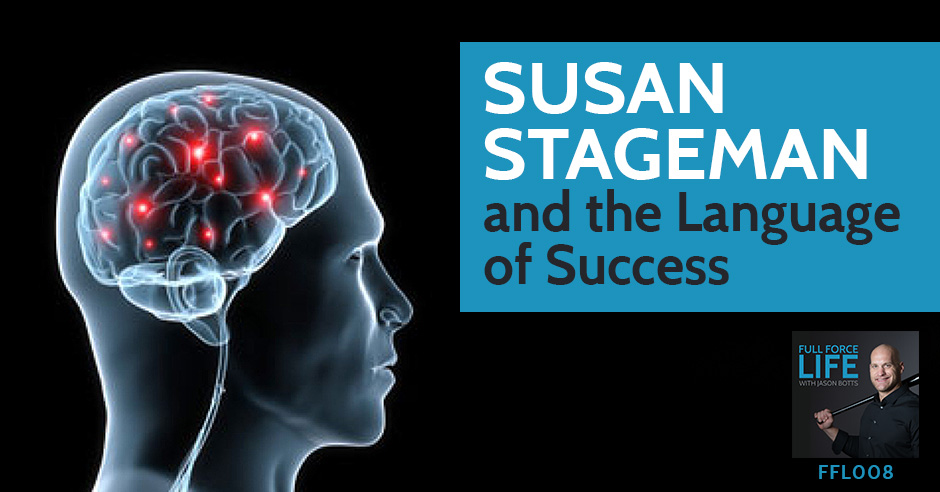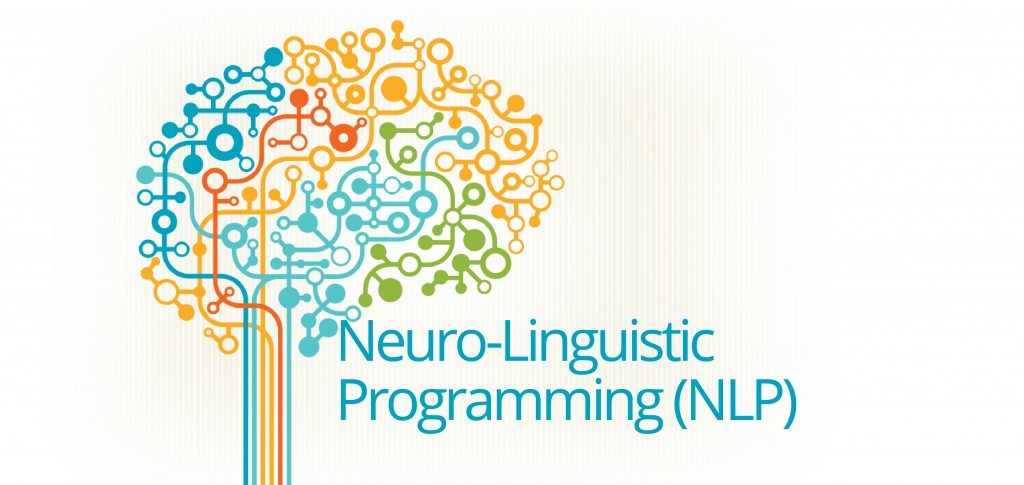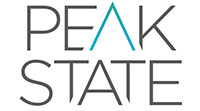
To give you a brief explanation, the idea of the Full Force Life, it’s been a couple of years in the making, going back to the end of my baseball career, retiring from fifteen years of professional baseball. At first, it was great. It was relaxing. It was nice to no longer have that stress of competing for a job every single year. I have these two amazing boys I got to spend time with them three or five at the time. I had this amazing, beautiful wife.
Over the next several months, I just noticed that that fire was gone, that passion, that drain sense of energy. The energy was gone. The next thing I know I’m struggling in the relationship. Things aren’t going right. Things aren’t feeling right. All of a sudden, I’m stressed, I’m overwhelmed with the boys. Here they are, the reason why I retired. I love them. I appreciate them every day, but I just don’t know what to do. I can’t handle them. It’s too much. I even get the moments of sinking into depression through it all.
I remember just thinking to myself at that time, how could I be so bad, mentally, at life? But yet on the baseball field, in that batter’s box, one of the world’s best, where I’ve spent my entire life studying mental performance and peak performance. I can get myself in the zone and do what’s considered one of the most challenging things in all of sports, hitting a baseball. I could do it consistently.
I got paid for a long time to be able to do it. But here I am struggling in everyday life. I just thought to myself back then, “How do I take all those good things I did on the baseball field and I learn to live in the zone in life? I came up with the title, The Full Force Life, where you have all that energy. Everything’s aligned and you’re just going straight for your goals. I know you’ve been there at some point. Hopefully, you’re there now.
I wish I could say at that time that the water’s parted and all the answers came down from the heavens. But I found that seldom it’s like that in life. Things actually got a little bit worse. Overtime, over the next couple of years, things started coming together. I was so blessed to have amazing mentors, amazing people in my life that helped transform me and helped me, teach me how to live full force, live in the zone of life.
Today, we have a special guest, Susan Stageman, an NLP Master Trainer. She’s one of those people who helped shape me and teach me how to get specific and to get clear and to build up the resources inside of me to create what it was I wanted, to live in the zone of the life the way that I wanted on my terms.
I brought Susan in today to talk about the language of success. Sometimes we get so lazy with our language. We get lazy with our thinking. What that does is it gives a lazy direction, an unclear direction to our brain of what it is exactly that we want. That’s why a lot of times, we will never get there. Because we haven’t learned to language it properly to ourselves at the very least. Susan is going to bring us awareness, things to look out for, things that we can do to help us to get to exactly where we want to be. I’m excited and honored to have her on the show and have her do that for us.
Listen to the podcast here:
Susan Stageman and the Language of Success
Today, we have a very special guest. We have Susan Stageman, NLP Master Trainer. Susan, are you out there?
I’m out here.
Welcome. Thank you for honoring us, being on the show today. We’ve got a great topic that I think you and I came up with together about how to help people come up with the language for success. Before we get into that, I wanted to really ask you and maybe help you explain to the listeners out there, what is NLP? What is an NLP Master Trainer?

Neuro-Linguistic Programming is a model of models. It’s a unified field theory of information from linguistics, psychology, neurology, systems theory, and cybernetics, which is the study of humans and machines. Originally, it was developed in the late ‘70s to help therapists and other people who work with people be more effective at working with other people. They developed what is called a model of models or the models of modeling process to help people understand patterns of success in other people, whether that be communication, whether it be learning or whether it be behavior. Then provided a procedure or strategy for being able to elicit that information from a human being and help another human being acquire that skill. Basically, it’s the patterns of success. It studies the patterns of success of humans.
My job as a Master Trainer is to help people acquire those skills. People who are successful, regardless of what they do, they run certain patterns, they do certain things that everybody else isn’t doing. They use their head, their mind, and their brain in ways that people don’t use. Computers, there’s a wide range of how computers work. There are computers that don’t have a lot of computing power. There are computers that have a lot of computing power. They do a lot of things. They have a lot of plug-ins. They are able to operate very, very fast. They’re able to do a lot of different things. Minds are the same way. Some minds have more ability to do things; solve problems, be creative, be productive, do the things that they want to do, do the behaviors they want to do. That’s what NLP studies. It’s my job to teach people those patterns so that they can have the same success.
We talk about the language of success today. My first question with that is, what does that even mean?
To begin, people are like fish in water when it comes to language. Language is all around us. We think in linguistic structure, yet most people are not aware of how their language affects other people, how it affects their outcomes or their goals and their ability to get them, how it influences or persuades other people, and how it influences themselves. Studying language and linguistic structure helps people understand how their communication is getting them the results that they’re getting, whether they’re talking to themselves or speaking to other people.
When we have experiences, Jason, those experiences are coded or put into memory through our five physical senses. Then we explain to people what they are or we think about them in terms of language or linguistic terms. Then we store those experiences with linguistic labels, so that we can pull them out quickly. Because of the linguistic labeling that human beings use, we can distinguish between fear and anxiety, terror and apprehension, love, feeling good, being excited. None of the words would have any point if there wasn’t some underlying emotion. All of that involves the brain and body responses. We’re always aware that we’re speaking or thinking in language but we don’t know or we’re not aware of how it shapes our world. Studying language and its effect on us and other people, there are certain patterns that allow people to do a better job of persuading and influencing than others.
Is it possible for you to give a more specific example?
Sure. When people talk, they leave out information. They generalize information. They distort it even. When someone says something like, “The economy’s better, the economy’s worse, it’s best all around, I’m nervous, he forced a divorce on me, life is difficult today, I’m happy.” Those are things that people say almost every day somewhere in the world. Yet, we really don’t understand what the underlying information is that helped them get to that conclusion.
Oftentimes people don’t talk about their criteria, what’s important to them or their evidence that they used to get what it is that got them to make that particular statement. If somebody says to me, “It’s best all around.” What’s “it’s”? I don’t even know what they’re talking about. Best, best compared to what? All around, All around what? Yet, because we’re like fish in water when it comes to language, when we’re having conversations with people, we say these types of things a lot. We just accept them as face value, never understand what the underlying structure evidence was that got the person to come to that conclusion.
Things like, “It’s bad to be in debt.” Bad, according to whom, first? What about, what’s debt? How much debt? All debt? Some debt? There’s just too much information missing or generalized from that statement to understand what the person is really communicating. Are they talking about themselves? Are they talking about other people? That’s one of the things that we study, is how to frame, communicate something with the fewest distortions, deletions and generalizations as possible, so that another person could understand them.
I think one of the things that I’ve learned from you is not just the idea that communicating is something that you do with other people, but it’s also something that you do with yourself. Taking what you’ve explained about the generalizations and formulate it into, in NLP they use the well-formed outcome. There’s something that we want. How do we get specific with creating what it is that we want so that we can get there?
This is one of the first things that I worked with people about. In fact, I just did this in the in the Dallas NLP meet up last month. I had them make outcome statements. I said, “Kathy, what do you want when you think about your business?” She said, “I want to be excited about contacting people about my business.” First of all, when I worked with her, I asked her what would that do for her if she was excited. She said she would make more calls. I said, “Is that really true?” I looked at her and she goes, “No. Not really.” I don’t remember what we actually ended up with that helped her understand what she really wanted. It wasn’t about feeling excited. It was more about feeling comfortable doing it. For instance, if I could just ask you for a second, what is something that you want?
I wanted to improve my health.
“I want to improve my health.” I have no idea what that means. Health. What’s health? Are we talking about emotional health? Are we talking about physical health? Are we talking about mental health? Are we talking about financial health? Are we talking about relationship health? What is health? Health is an abstraction. There’s a lot of information and experience that goes into that word. It’s very nebulous. People throw it around, “Health. Health this. Health that. Health insurance.” What is that? I don’t even know what that word means exactly.
That’s one thing. Then, improve. I would have to assume that you want to improve that you’ve already made some progress on becoming healthier. But I have no idea where we’re starting and where you want to end up. Improve happens to be a word that’s used by people who like to sort for samenesses and then differences. It’s like an internal clock. They’ll accept a major change every five to seven years. All that tells me about improving is you like things to evolve. You don’t like things to just go from one, “Here I am now” and then big differences that this is going to be an evolution that you’re going to work on through time.
When someone says something like, “I want to improve my wealth. I want to improve health.” That is so general and so undefined, yet people, when they listen to that, think that they know exactly what you mean. I have absolutely no idea what you mean. When I’m talking with someone or coaching someone and they make statements like that, which invariably they do, I go into a high state of curiosity. I start asking questions to help them get more specific so that I can understand what they really want.
You want to understand what they want, but how does it benefit them by them being able to be more specific with clarifying what it is that they want?

They, first of all, have a focus. They set a direction. They’re more specific. It’s easier for someone else to understand when they talk about it. It’s more likely, and this is the big one, it’s more likely they’ll get what they want. People will say, “I want more money.” They can go out to the parking lot and find a quarter by their car and now they have their outcome. The benefit of being able to think and communicate in specifics is hugely important in people actually achieving the things that they want.
If you listen to people that are excellent communicators, they are very, very specific in delineating the criteria and what motivates them. They’re very specific about the words that they use. They think about what they’re going to say or what they are saying in order for another person to understand it, because if someone else can understand it, then they’ll understand it also. The brain is very directional. It gives you exactly what you want. The languages mirror the mind. People become very sloppy thinkers, which means they’ve become very sloppy thinkers. Sloppy thinkers do not get what they want.
When we add the element of “when” to getting what we want, what’s important about adding the “when”?
The brain loves specificity, when you give, say for instance, a goal with a timeline to it or an end point, it allows the brain to chunk and modify time so that you are more likely to get it by that time. In other words, if you leave something open-ended, then it can just go on and on and on. The opposite of that though or the other side of that is when you’re using the Outcome Frame that NLP provides, you can also go for outcomes which have evidence but not necessarily are time specific, like love. How do you know that you’re loved? How do you know you’re having a great vacation? How do you know that my life is easy? All of those have specific criteria that you use to compare to or evaluate it but they’re not arrival points. Whereas something like a car or finishing a degree or paying off all your debt or making a certain amount of money, those are all very specific things. You want to have a time that you’re going to accomplish them. Other things may not be time driven but you can still get really clear about them based on a set of criteria and evidence.
What about, when it comes to the Outcome Frame, the four conditions that are needed to create a well-formed outcome?
All outcomes, in order for them to be achievable, have to be stated in the affirmative; what you want versus what you don’t want. The second one is that it’s got to be demonstrated in three primary internal communication channels, such as knowing what you are going to look like and what you’re going to see, what you’re going to sound like and what you’re going to hear, and how are you going to feel when you accomplish what you’re setting out to accomplish.
Most people will visualize their goals but they leave out two other components, which are huge means of evaluation. They get out into the future and it’s not the right size and not the right color. Something’s not right about it. People will say, “I didn’t think it was going to be this way.” It’s because on the front end they didn’t create the blueprint they needed in order to create the outcome that they really wanted. Then the third one is that it’s got to be self-initiated and maintained, which means that it’s got to be something that you can control. We can have outcomes for other people but they’re not necessarily achievable. The fourth thing is it’s got to be realistic.
Maybe more in your own personal life, when you use the well-formed outcomes, how do you make the distinction of what’s achievable and what’s a big, I call them a stretch goal sometimes where we’re really going to have to grow and expand if we’re really going to achieve it. What’s the difference between being totally unrealistic or it being one of those stretch goals, at least for yourself personally?
It’s a really good question. When people set a goal, and if it’s a stretch goal and they are motivated to go for it. They’re willing and open to do the work along the way, willing and open for new information to come in, or get the skills. “Do the work” is what I call it. Do the work in order to get it, but they’re motivated to get it. In other words, it triggers them to get going. It gets them out of bed in the morning. That to me can be a stretch goal. When the goal is totally unrealistic, they go into anxiety. It makes people feel demotivated because part of them doesn’t really believe it and it sets up doubt.
That’s a tremendous answer, actually. I want to talk about some of the NLP Presuppositions. We talked about getting results. The one that comes to mind is people work perfectly to produce the results they are getting. Can you elaborate on that and what that actually means?
In the NLP model, there is no failure, there’s only feedback. People are hardwired for success. In other words, they’re being successful at whatever they’re doing. When we say people work perfectly to produce the results that they’re getting, it’s basically saying they’re doing the best that they can based on training, skill, thinking process, communication process. Whatever they’re doing, they’re doing the best that they can based on their set of criteria, skill level, etc. That doesn’t mean that can’t change. It just says that people are where they are based on a set of information, a set of characterizations and skills that don’t allow them to do any better. Can they? Would they be able to? Yes, if they want to learn how to do something different.
That’s the idea of finding new patterns?
Yes, finding new patterns of ways of doing things, thinking about it, etc. They’re successfully doing what they’re doing based on a set of skills and language or communication. If they want to change it then they’ve got to put some more effort or work into doing what it is that they need to do to go to another level.
Your metaphors and your analogies always crack me up. The other ones I think were my absolute favorite was the analogy of solving problems or finding solutions, the idea that is similar to when you find a piece of jewelry, like a necklace or something, that’s all tangled up.

The untying the knot. Here’s the thing. People often think that if they know how the problem started then they can solve it, and that’s not necessarily true. Oftentimes, we end up with a problem. Sometimes people know fully well how they got there but they don’t know what to do next. If they ask themselves, “What it is that I need to do next?” rather than getting discouraged and saying, “This isn’t working, blah blah blah.” By asking the right questions, they’ll lead themselves to answers that will help them solve whatever it is they’re trying to solve.
This idea of the knot, if you have a piece of jewelry or anything that gets a knot in it, a string of some sort, knowing how that happened is not going to help you solve the problem. What’s going to help you solve the problem is you teasing the knot in different directions. If it happens to be jewelry, sometimes they use a pair of tweezers. I don’t care about how it got tied that way or knotted that way because that’s not going to help me get it untied. What’s going to help me is understanding what the structure of the knot is. I’m going to tease it here and there to find out how I can unravel it and get the knot to go away, to get it to smooth out.
One time, something that I had a lawyer file for my business got screwed up. Later on down the road, my CPA is saying “Let me tell you how this happened.” I just stopped him in the middle of the sentence and I said, “I don’t care how it happened. I want to know what we’re going to do about it.” If people could adopt that question, “So this happened. What are we going to do about it? How are we going to get ourselves to move forward? What is it that I have to do differently to avoid this again? What do I have to do differently to move past it?” All of those questions will lead you to answers that will help untie the knot, that will help you solve the problem. Oftentimes, then you can develop procedures and strategies to prevent it from happening again. Knowing how it happened is not high quality information. It will not get you the ability to solve it.
I think that’s phenomenal. That really leads into this next question. It’s a question you taught me to ask myself and I’ve used it with other people as well. The idea of when things aren’t working the way that I’ve planned or I’m not quite getting the result that I’m seeking, I’ve learned to ask myself, “If everything was resolved right now, what would I be doing?” Can you explain how that works, because it works like magic?
Here’s the brain. The brain, the way it operates, going back to the linguistic structure. That’s how we understand things, is through linguistic labels. We get linguistic labels through meaning. We attach a meaning to something, we slap a label on it then it forever is known as X. When people get stuck or they get frustrated because something’s not working, if you ask yourself what’s going to be different after you’ve made this change or, as you said, “If I’ve already solved this, what would I be doing now?” In order to answer the question, the person has to, in my terms, re-chunk and re-syntax, syntax is meaning, information at an unconscious level to be able to answer that. Just by asking the question, by a person’s ability to answer it, they’ve already solved their own problem. All they have to do is watch their abilities change in order to get past where they are and into what it is that they want. Having a clear outcome, of course, is paramount in this situation.
When people don’t have clear outcomes, they tend to get stuck. They tend to get distracted by negative consequences. They tend to get frustrated at their present situation. They’re not focused on really what they want. They’re focused on what’s happening. That doesn’t necessarily get people to propel forward. What it does is it keeps them stuck in this loop of thinking that things aren’t going to get better or “Why is this happening? What caused the problem? etc.” when all they have to do is ask themselves the question, “What would I be doing if this wasn’t happening now?” There’s a fine line between installation and elicitation. Your brain is very open to suggestion. It will follow those suggestions quite readily if you give it something that’s worth following.
The question was, if everything was resolved, if this problem was solved, what would I be doing next? I think that’s been such a huge tool. I know it’s just a question but in my mind it’s been a tool to really help me through a lot of stressful or situations where I didn’t know what to do. But I got clear and I was able to ask myself that question and move on. Tell me, Susan, you’ve got a lot of experience with training other people. What’s one of your favorite parts about working with other people?
What I love about it is the results that they get and watching them, especially a person like yourself who’s already been successful and has some good strategies, mental strategies already in place. They start with a tier one or introductory level program. They literally transform their communication, their energy, their ability to solve problems, get what they want, their ability to work through issues, to maintain their states while they’re going through difficult situations. Basically, just be amazing human beings. I call what I do going from good to superb. People end up being superb, not just good. Anybody can get to good, but it takes a real commitment. It takes study. It takes knowledge. It takes the ability to put that knowledge into behavior. That’s what separates someone who’s really good at what they do to someone who’s an expert who’s really superb or extraordinary. Ordinary to extraordinary, as I say.
Talking about making people superb, for the people who might be living in Dallas or Fort Worth, where can they get in contact with you? I know you’ve got your new classes already set up, but at least tell them where they can get in touch with you and maybe sign up for somewhere down the road to get training if that’s something that interests them.
An easy way to get a hold of me is just simply to go to my website or they can call me at my local number, which is 214-351-5433. It is a landline, so don’t text me. They can also email me, Susan@nlptrainingconcepts.com. I’ll be happy to chat with them about their situation and what’s going on for them or what is it that they’d like to accomplish. Sometimes people feel like they can’t accomplish something until they solve the issues that they’re dealing with.
Sometimes people think, “I’ll read a book,” something like that or, “I’ll work with a coach.” I am totally supportive and I think that working with a coach is absolutely necessary to be a really good business person. However, if you don’t have the training behind it, if you think of athletics, and you would do this more than most people, the difference between a trainer and a coach, what does a coach do? According to you, what’s the difference between a coach and a trainer?
I think the difference would be a coach teaches me how to do something. A trainer teaches me how to teach other people how to do it.
It’s a little bit different. You’re an athletic person. I think of it this way. A trainer teaches you how to do something. A coach makes sure that you maintain that skill through time and improves it. You need both. Sometimes people just get little bits and pieces of a model without the whole system. It’s like playing baseball. If you can hit the ball and field it and throw it, then you’re going to be a more valuable player than if you’re just going to hit it or if you can just field it, catch it or throw it. If you throw yourself out into the baseball world, the more all-around you are, the more valuable you’re going to be. Is that true?
I 100% agree with that. In my world, that is true.

You have to understand the game. You have to understand the system of the game in order to be a great player. It’s the same with communication. You have to understand the system through which human beings operate, then you’ll always be a great communicator. It’s not about learning your lines. It’s about being a great communicator. Oftentimes, people want to know, “What do I say?” If you have the whole system of thinking and understand what language goes, you don’t have to ask that question. You know what to say. You are the communicator rather than just doing or talking and using words, knowing what to say. That’s the big difference between someone who is extraordinary and somebody who’s just ordinary.
When it comes to communication, what you’re saying is it’s not what you say, it’s what’s understood. Is that about right or is that different?
That’s a little bit different, but yes, that’s certainly important. Being understood and saying are extremely important. That’s true. Let me use this analogy. People who understand how flying works, how an airplane works, have less fear of flying than a person who just knows how to buy a ticket and walk on a plane and order a drink. Because a person who understands what aerodynamic physics are about know the reason why a multi-ton piece of steel can fly at 30,000 miles in the air and fly across to Europe or points East or West of that.
In fact, I know a person who was definitely afraid of flying and they went and took flying lessons. They went and studied how airplanes works. That solved the problem of their being afraid. Once they understood the mechanics of it, they thought, “Wow. It’s pretty amazing.” There’s no fear left in it when you understand how something’s going. Understanding how your brain works, how to make changes, how to understand your patterns, how to be a good communicator, a great communicator, say what you mean and mean what you say sort of thing, is you have to understand the system of what makes human beings work, not just know what to say. Does that make sense?
That does. That was a better explanation for me. The website was NLPTrainingConcepts.com. I really appreciate you being our guest here.
I appreciate you, Jason. You’re great.
Thank you so much. Aim high, swing hard, smile often and live full force.
Important Links
Guest Bio
 Susan Stageman, M.A. is a Master NLP Practitioner and Certified Trainer through the Society of Neuro-linguistic Programming. In her practice, she trains both individuals and facilitates group sessions in Neuro-linguistic Programming. Susan also conducts classes in stress reduction, identity work and is a Certified Challenge Course Instructor (Ropes). She has been teaching NLP since 1989.
Susan Stageman, M.A. is a Master NLP Practitioner and Certified Trainer through the Society of Neuro-linguistic Programming. In her practice, she trains both individuals and facilitates group sessions in Neuro-linguistic Programming. Susan also conducts classes in stress reduction, identity work and is a Certified Challenge Course Instructor (Ropes). She has been teaching NLP since 1989.
